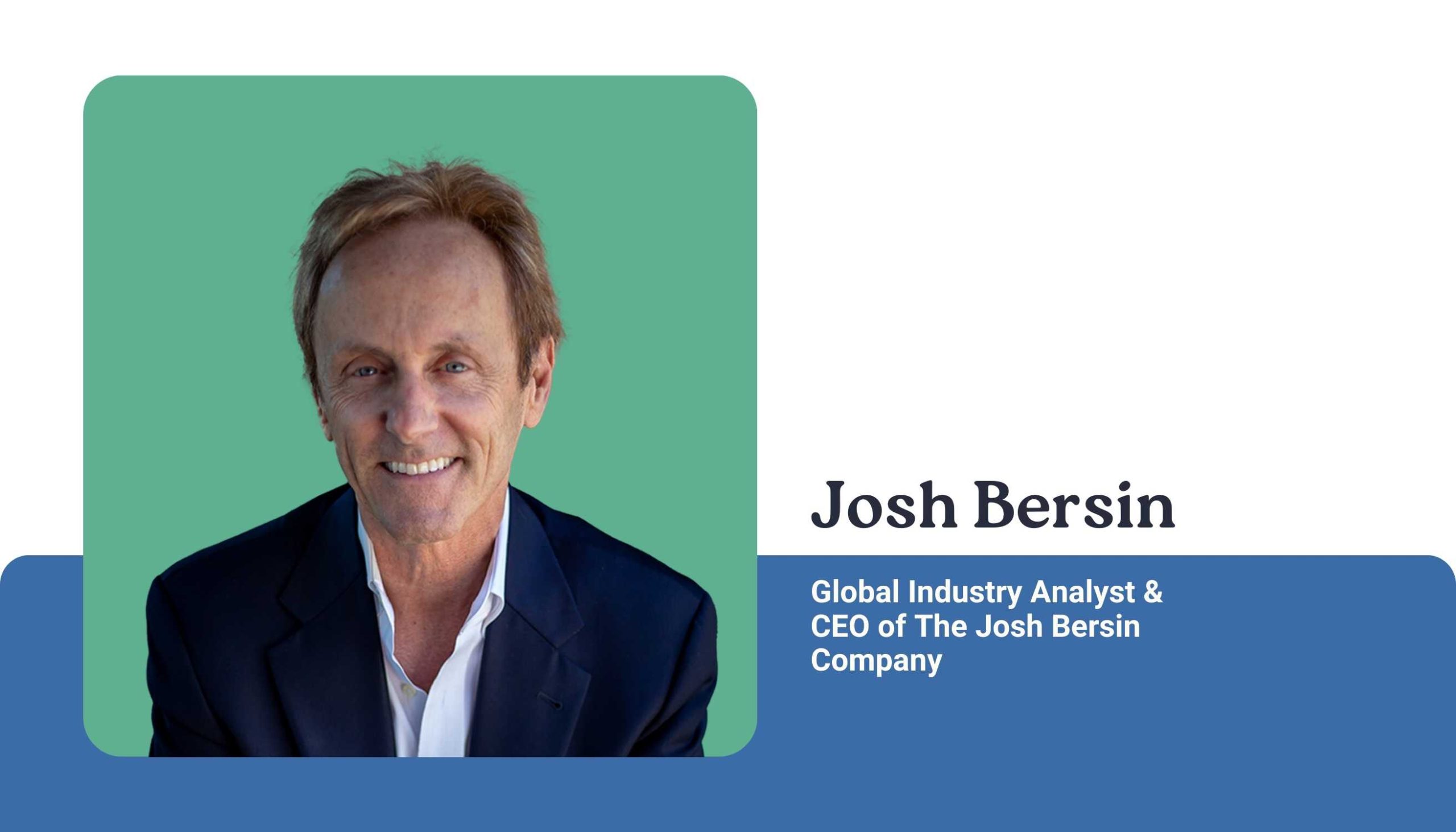In this captivating interview with The HR Digest, Josh Bersin opens up about the transformative milestones that have defined his remarkable career. From navigating sales to witnessing a seismic shift within IBM, Bersin shares valuable insights that form the foundation of his role as an HR analyst. His podcast series, “Irresistible Leadership,” serves as a compelling platform for thought-provoking discussions on the critical role of culture and leadership during times of adversity. Bersin’s research, a cornerstone in his “Definitive Guide to Leadership,” reveals a significant gap in leadership development, emphasizing the imperative for companies to invest in cultivating effective leaders.
In his latest publication, “Irresistible,” Bersin unveils the seven essential secrets of enduring organizations. Each secret serves as a powerful guiding principle for achieving success. As the CEO of The Josh Bersin Company, he anticipates monumental shifts in the HR landscape and urges organizations to embrace systemic HR and AI technologies. This interview transcends mere conversation; it is a masterclass in HR strategy delivered by one of the industry’s foremost thought leaders.

The HR Digest: Can you share key milestones in your career journey, and how they shaped your perspective on the global talent market?
Long before I got interested in HR, I spent 25 years in sales, marketing, business development, and product management. I had the opportunity to watch IBM’s transformation from a mainframe company to a PC company, and then watched Sybase evolve from a small company to a global powerhouse. Finally, I worked in two start-ups building enterprise solutions in training and online learning. So all of this experience informed my career as an HR analyst, as it showed me how companies work, how hard it is for them to transform, and what topics like management, leadership, culture, and development mean to employees. So, when I entered HR in the year 2000, I suddenly realized there was a huge set of practices, science, and belief systems behind all that I had experienced, and that is why I continue to focus on making HR relevant, actionable, up to date, and 100% outcomes-oriented.
The HR Digest: In your podcast, you discuss Irresistible Leadership models. How do these models redefine traditional leadership, and what inspired your research on this topic?
When I think back about all the companies I’ve visited with and worked with, the big problems they face always come down to leadership and culture. No matter how successful a business may be, when the times get tough (and eventually, they always do!) it’s the leadership and culture that defines the response. And I’ve watched so many companies fall apart when their leadership does not listen, ignores employees, or simply does not operate in a holistic, developmental way. What I concluded—which is what the Irresistible book is ultimately about—is that every successful company becomes successful because of the employees, not the bosses, so when we support, develop, and respect the people the company thrives, and for decades. That’s a very simple version of Irresistible’s thesis: that great companies respect the unquenchable power of the human spirit.
The HR Digest: Your Definitive Guide to Leadership Development was the result of extensive research. Could you highlight key insights from this research and how they contribute to leadership development?
Disappointingly, that study revealed that companies have really fallen behind in their spending, investment, and focus on leadership development. Leaders are made, not born, and if we don’t invest in finding time to put effort into this, leadership just becomes an inconsistent role that’s done differently around the company. Teach organizations how to continuously invest in leadership, revisit their leadership models, and apply the model through specific behaviors. The Bersin Company research also shows how young people are desperate for leadership development, and we can no longer think about this as a hierarchy. Everyone needs help leading teams, projects, groups, and organizations. Finally, the research discovered through data, that we now live in a world where people are first and execution is second. In other words, we no longer “hit the numbers” and then take care of the people; it’s actually totally the other way around.
“Every successful company becomes successful because of the employees, not the bosses, so when we support, develop, and respect the people, the company thrives, and for decades.”
The HR Digest: Your most recent book is entitled “Irresistible: The Seven Secrets of the World’s Most Enduring Organizations.” Can you delve into these secrets and how organizations can embody enduring qualities?
The seven secrets focus on flattening the organization, defining management as a coaching process, focusing on culture and purpose as a way to drive execution and decision-making, learning to work in small and agile teams, moving people around in the company for development and growth, creating accountability and clarity of responsibility, and focusing on technology for productivity, not just speed and efficiency.
After outlining these imperatives, the book goes on to show how each of these topics is complex and needs focus, because if any of these seven things fall down the company tends to lag, and when issues come up, they’re always focused on one of these topics. In many ways, I think the book is a lesson to leaders (and HR) that great companies don’t just build great products and serve customers, but that they develop people as well. The book is written as an approachable way to understand the seven secrets, so any manager, leader, or HR person can learn a lot. And of course, it’s filled with real-world, coal-face organizational war stories to learn from, which I run across every day year after year.
The HR Digest: As the CEO of advisory firm The Josh Bersin Company what shifts do you foresee in the HR landscape, and how should organizations adapt to these changes?
HR is going through one of the biggest transformations I’ve seen. There are two facets to this: first, HR teams have to be much more solution-oriented and go out and solve specific company problems, not just build “programs” and assume they’re going to work for every department. Doing that means shifting the operating model of HR from that of a service delivery organization to that of a product, services, and consulting organization. We call that evolution “Systemic HR,” and it’s a major theme for 2024 and beyond. The second part is learning to harness AI, which is radically changing how people work, how we organize our people, how we look at skills, and how we look at the jobs we need them to do. Right now, HR people are intimidated by AI, but they have to jump in fast, because it brings together information and decision-making in a wholly new way. That means professional development for every HR person, cross-training everyone in HR, and overall investing in the career development and growth of the HR team itself.
“HR is going through one of the biggest transformations I’ve seen. There are two facets to this: first, HR teams have to be much more solution-oriented and go out and solve specific company problems, not just build ‘programs’ and assume they’re going to work for every department.”
The HR Digest: In a bonus (podcast) episode, you discuss “Bold Leadership.” How can leaders embrace boldness in their approach, and how does it contribute to organizational success?
The word “bold” is an apt choice here, because it connotes strength and creativity but not frenzy or dysfunction. Lots of people emulate Elon Musk and other “bold but difficult” leaders: my point is that if you’re not bold, you’re probably falling behind. The real issue here is not pushing people or coming up with new ideas, but rather thinking through how an individual or leader can create, build alignment, and drive a bold agenda–and bring the people with you. To be honest, from what I’ve seen in global business, that isn’t really possible unless you master the seven secrets and become a truly Irresistible employer.
The HR Digest: Given your focus on corporate HR and talent, how do you see technology shaping the future of work, and what advice would you give to HR professionals navigating these changes?
Well it’s massive, and of course it impacts every employee in every role. I’d say there are three big issues for HR: a) be sure you are only ever buying tools that are relevant to your company’s specific problems, and not buying big generic systems that may or may not fit your needs, b) focus every technology decision on the user (is it easy to use or not? If it’s not easy to use, we don’t need it!). Also, c) get to know the vendor landscape and manage HR technology as a continuous, product management process. Don’t lose sight of the fact that every tech you buy has a lifecycle and fits into others, so you need an architectural view and to constantly look back and see if your tools are working together or not really cohering that well.
The HR Digest: What advice would you provide to those starting their journey in the human resources field?
I would say first that HR is the most exciting, enjoyable, and mission-driven profession I’ve ever been in, so get ready to really think big. Second, don’t underestimate the amount of history, research, knowledge, and expertise out there; you’ll be amazed at how many topics there are to learn about, so join our Academy, get to know other HR people, get involved in new projects, and expect a very steep learning curve. Within a few years you start to master your domain and then you realize it’s being reinvented before your eyes. I would also add that you should try to work for a company that respects and values this profession and function. Frankly, if your current environment doesn’t take all the aspects of modern, people and data analytics-driven HR seriously, your career will stagnate. We can simplify that down to, the more you look for people who aspire to do more, the faster you will progress.
 |
Josh Bersin, a renowned analyst, author, and educator, deciphers the complexities of the global talent market. His keen eye for trends and challenges impacting workforces worldwide has established him as a leading HR and workplace thought leader, shaping the future of work through his insightful studies and guidance. |





